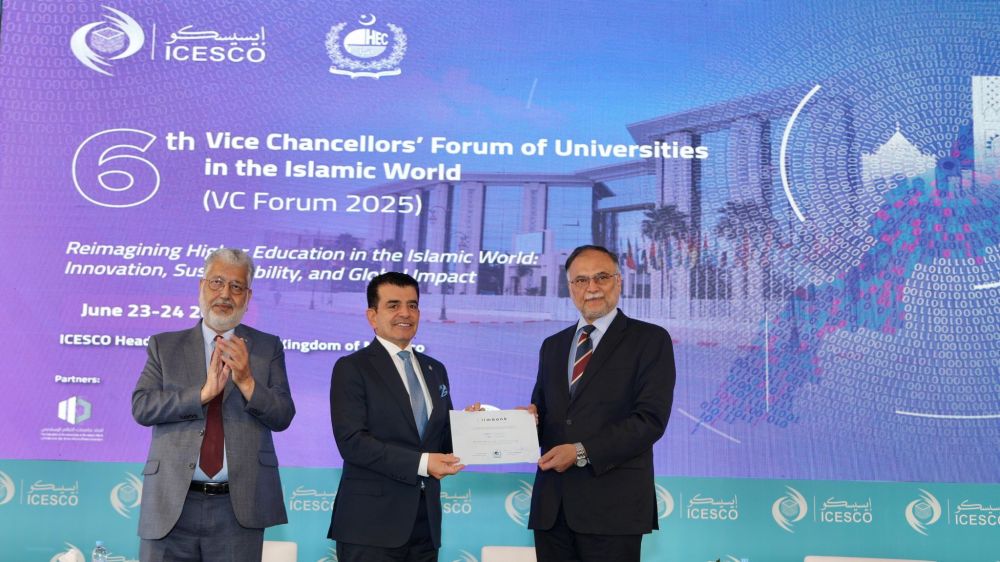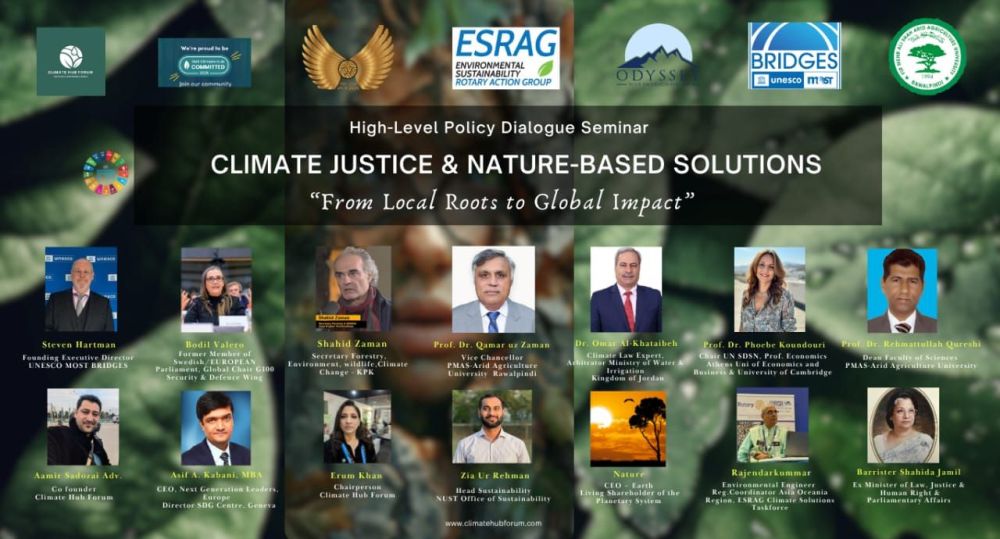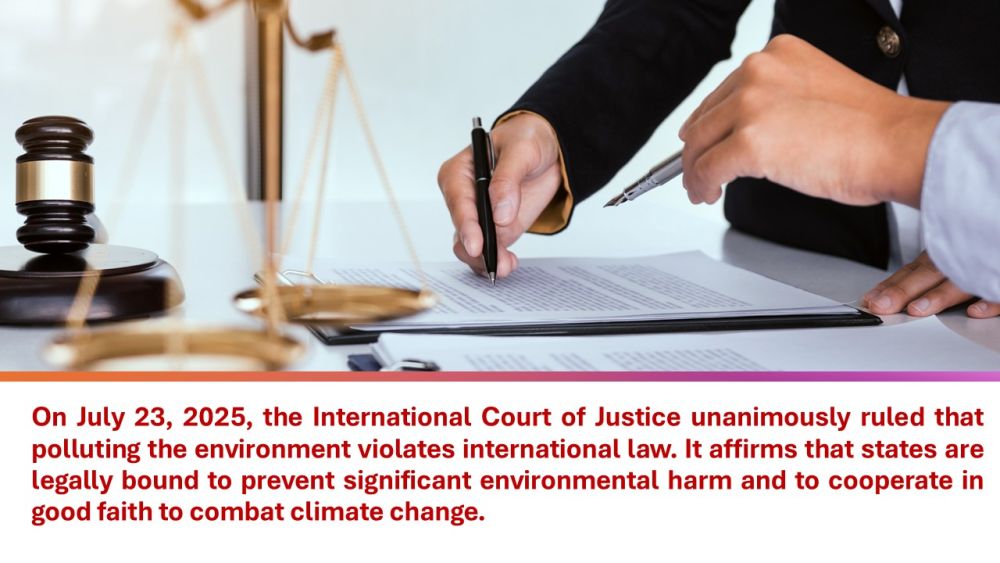30/25 ISWA 2025: The Global Waste Summit That Could Define a Greener Economic Future
Posted 6 months ago
Information and Registration for the Congress
The International Solid Waste Association (ISWA) will hold a World Congress 2025 from October 27 to 29, 2025, at the Buenos Aires Convention Center (CEC) in Buenos Aires, Argentina. The Conference theme, "Towards a wasteless future or a wasteful planet?" will define how technology, policy, and people must converge to address one of the planet's most pressing crises: waste.
The conference is held after climate instability, urban overgrowth, and unsustainable consumption. According to the conference website, the three-day event will attract "waste management professionals, government officials, industry leaders, policymakers, scientists, and young professionals to exchange views and opinions and advance scientific and technical knowledge for sustainable solid waste management and a circular economy."
Waste isn't just a problem to manage, it's an opportunity to lead. The next decade's most profitable and resilient businesses will be those that know how to turn waste into wealth: energy from refuse, circular packaging innovations, compost-as-capital.
That's the ISWA vision, and organizations like Greening dot live complement it by reconnecting the conversation to nature. As sustainable finance accelerates and Environmental, Social and Governance (ESG) investing matures, data-backed greening efforts, especially inclusive and verifiable ones, will draw increasing attention from institutional capital.
The fusion of circular economy and ecosystem regeneration is no longer philosophical; it's financial.
🌍 Waste to Opportunity: How ISWA Is Shaping the Global Waste Economy -Reimagining Waste Management for a Circular Future
Over 2 billion tonnes of municipal solid waste are generated globally every year, and that number is projected to nearly double by 2050. That's not just a growing environmental challenge; it's a massive opportunity for innovation, investment, and leadership. Based in Rotterdam, the International Solid Waste Association (ISWA) leads the charge toward a circular economy and a waste‑free world.
ISWA at a Glance: The Global Platform for Waste Leadership
Since its founding, ISWA has positioned itself as the world's leading professional network in sustainable waste and resource management, representing stakeholders across public agencies, private firms, and academia in over 90 countries.
The ISWA mission is simple but ambitious: "to promote sustainable waste management worldwide." ISWA accomplishes this through conferences, technical working groups, training programs, global publications, and a broad membership network of professionals.
Thought Leadership & Media: Waste Management World Magazine
ISWA publishes Waste Management World (WMW), the only global magazine dedicated to the solid waste and resource industries. Launched in 2000, WMW offers deep coverage of recycling, waste‑to‑energy, municipal operations, and biowaste, leveraging ISWA's unique access to industry leaders and policy influencers worldwide. All ISWA members receive access, digital and optionally print.
The WMW publication serves as a trade journal and a business intelligence platform. It focuses on innovation, investment trends, policy shifts, and case studies from leading waste operators across regions.
Research-Grade Insight: Waste Management & Research (WM&R)
Alongside WMW, ISWA produces Waste Management & Research, a peer‑reviewed, monthly scientific journal with an Impact Factor of approximately 3.7 as of June 2024. WM&R publishes original research, reviews, short communications, and letters, offering rigorous data for policymakers, industry, and academia.
Strategic Outputs: Reports, Toolkits & Knowledge Base
ISWA's output extends beyond publications. Its Knowledge Base hosts thousands of technical documents, case studies, reports, guidelines, and toolkits on topics ranging from municipal organic recycling to plastic treaty task force analyses.
Key recent releases:
- Executive summaries of the Global Waste Management Outlook 2024 (joint UNEP/ISWA report), tracking waste generation and costs with scenarios to 2050.
- Regional briefs (e.g., Southeast Asia), standards for recycling credits, position papers on incineration with energy recovery, and toolkits for informal recycling in women‑led communities.
Why It Matters: From Waste Crisis to Circular Economy Opportunity
Key Theme: Business & Policy Impact
Market Growth - Rapid urbanization and rising waste per capita drive demand for scalable solutions and infrastructure investment.
Policy & Regulation - Position papers, such as those on plastics and incineration, shape international negotiations and national regulatory frameworks.
Innovation Spotlight - Articles in WMW highlight new technologies in waste‑to‑energy, digital recycling platforms, and modular composting, all of which are ripe for venture capital interest.
Sustainability ROI - WM&R's rigorous research underpins the business case for waste reduction, reuse, and recycling, translating environmental metrics into financial rationale.
What Leaders Caring About Waste Management Should Know?
- Data is capital: ISWA's research tools like the Global Outlook create investment‑grade insight into waste volumes, costs, GHG emissions, and circular economy scenarios.
- Thought leadership is policy power: Position papers and toolkits are steering stakeholder alignment on plastics policy, standards for recycling credits, and gender diversity in informal waste sectors.
- Media translates action into awareness: Waste Management World presents blended coverage of market innovations, project success stories, and global trends—in language that resonates with decision‑makers and investors.
From Trash to Treasure
ISWA provides a rare convergence of robust science, hands‑on case studies, executive‑level reporting, and policy advocacy. Its platforms, from WMW magazine to WM&R journal and its knowledge repository, offer critical insight, networking, and strategic direction for waste management, sustainability, infrastructure, or circular innovation leaders.
By treating waste not as a disposal challenge but as a business opportunity, ISWA positions itself and its members to shape the global transition toward a circular economy.





